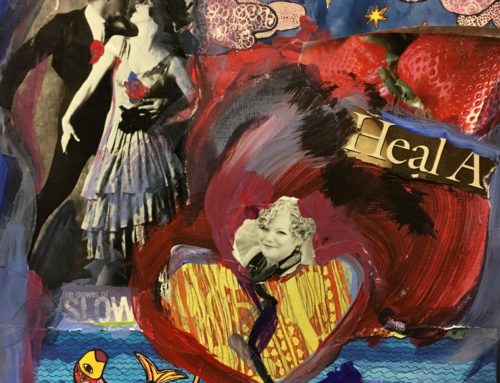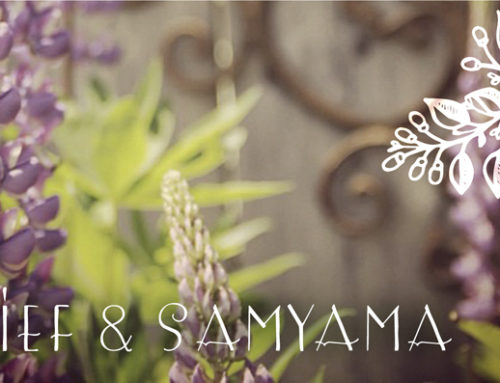Last week I invited friends and colleagues to share some of their new holiday traditions they started, after the death of family members. I’ve received many great re-imagined traditions as families search for new meaning celebrating the holidays without their loved ones present. My good friend Nancy Ruffner shared the following. When I read it, I knew that it was much more than a post on Facebook. I asked her if I could share it as a guest blog. She opens up an important conversation. I hope you find it as valuable as I do.
I did not expect this. I guess it’s true, the question arrives when we are ready for the work before us.
A friend of mine had queried me and others for new holiday traditions that came about as a result of change or loss. I sat down to write my response and this all fell out. 12/12/19
I believe there is so much grief woven into the holidays (of the know-it-or-not, or like-it-or-not variety). When the parents who have served in the matriarchal-patriarchal roles are no longer with us it seems that children, adult children, are unprepared to assume the role or even enjoy a tradition. Many traditions are abandoned as the participants’ expectations can never again be fulfilled.
Many people are fixed on the tradition as never changing. Isn’t that what tradition is? Our expectations become affixed on the participants, or the arrival at, or achievement of emotions more than the activity performed to get there.
I’ve begun to examine and rethink my stance on tradition. Traditions can remain, with an expectation that the participants (or year, or site, or activity, or, or, or) may change. It’s been my expectation that has been out of whack.
As we are inside the activity of a tradition over the years we enjoy and value the participants. Kids, for instance, learn from Mom and Dad to value and enjoy putting up a tree or some other joint venture that may involve shared activity, frolic, banter, cocoa, seasonal music, whatever. The peripherals are strong ancillaries. Later that bedecked tree represents a shared sense of accomplishment, a symbol of their work, together, resulting later in pleasure and honor (“the prettiest tree ever”), there for our gazing and reflection. There may be peace. The tradition then allows us to pause, conjure up memories from the past, even several pasts. Endorphins or dopamine (for you scientific types) are triggered and released. Powerful stuff.
A misalignment may occur when we confuse the strong pulls for the tradition and we place it on the participants (or year, or, place, or, or, or). For example, when Mom and Dad, matriarch-patriarch are no longer with us many a family member will find themselves somehow off-kilter, debilitated, or in a “what’s the use” -state. The loss (of participant) overtakes the willingness, not the tradition. Misaligned or misplaced emotion is the cause for many, for a year, a few years, or even permanently.
Some cannot seem to adjust to the change. I hear this often around the holidays. We view TV shows or read of folks with thin a blue funk. They are stuck, or they are DONE. No more. I’ve surely felt it, and I also still feel compelled to fix this (once a caregiver always a…) in my family. I want to enable my family to feel joy, to arrive at “that place”, to have those good feelings and memories. See that? I want them to, I want that for them. I, I, I. Keep reading.
Who then is denied tradition if we declare ourselves to be stuck, or DONE with tradition? One has to wonder about the effects of a Full Stop on the next generation.
Compare it to sports, to college basketball, let’s say. There is tradition in college sports. People look forward to a season. Around the sport they participate in many ways: team, coach, spectator, producers, trainers, site personnel, media, refreshments vendors and so much more. There is honor involved in this tradition. That “part of” -feeling. Pride, maybe strength. In basketball there are leaders who age out, players also. All journey through a season with their favorite teams, reveling in a winning season, supporting during a tough one. We do not, however, stop the basketball tradition when a star player moves on to the next level or graduates, or when a beloved coach retires. Rather, we continue to support and feed the tradition, turn our sights to the shared activity while still valuing its participants. We celebrate the basketball-activity over years, through time, and the fact that it is through time. We are glad for the season’s experience. We converse about great games and epic plays of last year or last week. It binds, and it creates kinship.
This tradition carries and celebrates the shared activity. It may not be a tree and a circle of loved ones, cocoa and reflection or peace. However there is certainly the banding together to play or watch the game, the emotional crescendo as delivered by a game or season. The participants-fans are together, not the same ones or configuration every year, and specifically for this tradition.
What then is the difference? Are we (ourselves) placing too much emphasis on the participants over the shared activity-tradition? Do we place too much on the “is” or the “was” or the “must”? Is our preservation of “was” taking on desperation and abandoning joy? Are we holding tradition hostage, and if we cannot achieve it (whatever “it” means to us) then no one else shall either?
Who then is denied a tradition? And who is doing the denying? We must ask ourselves those questions and this one:
What is our gauge, truly, and is it the right gauge?
I see many families struggle during the holidays yet so many others carry on with their ever- merriment. It can be bittersweet to see groups of folks not skipping a beat on the activity, incorporating the changes in personnel if you will, and having a marvelous time. It is hard for the hurting to witness the joy which may then cause the hurting to further retreat. It is hard to stand in a vacuum and know that the joy is swirling all around us, sheesh! A few will find themselves in a web that is difficult to climb out of. What will again make them willing? What will draw on a mustard seed of good times passed, or allow hope?
We as participants have an obligation to include, to invite, to tempt, cajole and even rally others into our season. Come and just be with. (It’s a No Judgment zone). Have some emotional cocoa. “Whatcha doing? Join us, won’t you?” Set the stage, open-minded and with an open heart.
Those who are hurting have choice also. And choice is good, as there is enough stuff being shoved into our faces this time of year. The hurting may decide to participate as they wish, or can. Perhaps they could observe what or how someone else is tradition-ing, or has, accept a wee bit of emotional (cocoa) exchange. Perhaps they could simply be exposed to a brand new kind of activity, try something on for size and (heart) fit. The hurting can surely retain the ability to “draw or discard” (the idea or activity), but could only bear witness. Watch, be there, and maybe even join in, if it feels comfortable.
I believe we have an obligation to others during this time of year simply to set the stage. We can be aware of those around us and afford them the right to their feelings and experiences.
We also have an obligation to ourselves to be willing, and open-minded. Set the table and issue a a kind invitation.
Tradition or no longer, my wish for all is the open-hearted part.
Nancy Ruffner 12/19/19
Nancy Ruffner, BCPA is a Patient Advocate, Instructor, Public Speaker and owner of NAVIGATE NC LLC. She founded NAVIGATE NC, an advocacy and care management consultancy whose services help persons to navigate the medical, legal, insurance and housing challenges during change. Since 2013 the company has emerged as a fast-growing agency with a goal of becoming a market leader for patient advocacy services in the Southeast. She became a CampaignZERO Educator to furtherserve as the voice of patients and their loved ones. Nancy was among the first in the nation to earn the BCPA credential, Board Certified Patient Advocate.



Leave A Comment